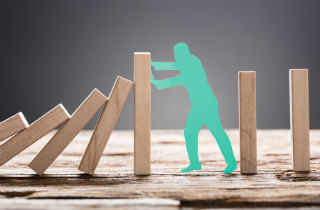By Randy Lindel, Facilitator, SMART Recovery® Boston
Are you ready to take control of cravings to use?
Read on for five (5) practical ideas on how to cope with urges and cravings after you have decided to abstain from drugs and alcohol. Plus, where to find more information on managing cravings and strategies to prevent drug relapse. We invite your questions, comment and feedback at the end.
Cravings are normal
Everyone who’s engaged in addictive behavior will experience uncomfortable cravings (“I want it badly”) and urges (“I have to do it now”). They are normal. But fortunately, they always pass with time. At the outset of recovery, they can be pretty intense, but each one will subside if you can wait it out and have a plan for relapse prevention. Cravings and urges will decrease in strength and frequency over time. You can make this happen by adopting some coping strategies that work best for you.
Learning to resist cravings
For many people, urges and cravings to use drugs or alcohol trigger automatic response. They are without conscious thought. I want [fill in the blank]. I get it. Learning to say NO to these intense ingrained desires is one of the biggest challenges in recovery. But the good news is that you can understand them and learn to resist them.
In fact, “Coping with Urges and Cravings” is Point 2 of the SMART Recovery 4-Point Program®. The SMART Recovery Handbook has collected nearly two dozen strategies for dealing with them. Some of the approaches that work best for many are summarized with the easy-to-remember acronym DEADS – as in “Combat Urges DEADS.” Each letter stands for a useful approach:
D = Delay. The mental activities of cravings and urges disappear over time unless you actively maintain them with your attention. Given time, they will run their course and disappear. If they aren’t gone in 10-15 minutes, then chances are you are still exposed to the stimulus that cued the urge in the first place. Just don’t give in no matter how bad the urge is and it will pass. All the urges you have ever had have passed. Once you have denied an urge, you know you can do it again and again. And after a short time, there will be fewer cravings and the ones you have will diminish in intensity. Waiting them out is a great step to recovery.
E = Escape. Just leave or get away from the urge provoking situation. Run away from it. Leave the pub so that you can stop staring at the beer taps. Leave the supermarket where all the bottles of wine are so nicely displayed. If there’s an alcohol ad on TV, switch the channel. Just the act of escaping the trigger will focus your mind on something new – which will quickly lessen the urge.
A = Accept. Put your urges and cravings into perspective by understanding that they are normal and will pass. It’s important in the recovery process to learn to accept discomfort. It won’t “kill” you and will be gone pretty quickly. You’ll feel good about what you’re learning and achieving.
D = Dispute. If you’ve worked through the ABC or DISARM exercises, you may have developed a rational “Effective new belief” or counter statement to help you attack your (irrational) urges and cravings. These exercises help you productively diagnose past addictive situations and develop useful tactics for disputing them when they occur again – which will help them pass much more quickly.
S = Substitute. When you get an urge, quickly substitute a thought or activity that’s more beneficial or fun. Take a walk or any other form of exercise. Pick up something new to read or turn on something to listen to. The possibilities to substitute (and lessen the craving more quickly) are endless. Think about and write down some possibilities to you have a list on hand when an urge occurs. Then just pick one to employ an effective response.
Questions about urges and cravings?
Thanks to our colleagues at SMART Recovery UK for some of these ideas. I hope they help you to find ways to say NO to your urges and cravings. If you need help with a current craving, or have a comment…please leave us a message below. We try to respond to all legitimate queries with a personal and prompt response.









Related Posts